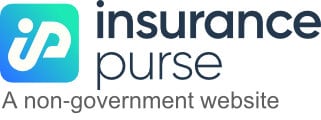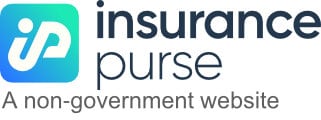Health insurance is evolving rapidly, and it’s crucial to stay informed about the latest trends and innovations shaping the industry. The future of health insurance promises exciting developments that could transform how we access and afford healthcare. From telemedicine to personalized health plans, these changes are poised to make a significant impact on the lives of consumers. In this blog post, we’ll explore some of the most promising trends and innovations in health insurance that you should be keeping an eye on.
Telemedicine: The New Normal in Healthcare
One of the most significant trends impacting the future of health insurance is the rise of telemedicine. The pandemic accelerated its adoption, and now it’s becoming a permanent fixture in the healthcare landscape. Telemedicine allows patients to consult with healthcare providers remotely, using digital communication tools. This shift is not just about convenience; it’s also about making healthcare more accessible and affordable.
Telemedicine offers several benefits that align with the future of health insurance. For starters, it reduces the need for in-person visits, which can be costly and time-consuming. It also expands access to care, particularly for people in rural or underserved areas. As insurance companies recognize these benefits, more are including telemedicine services in their coverage plans, making it easier for policyholders to receive care when and where they need it.
Moreover, telemedicine is contributing to lower healthcare costs, which could translate into more affordable premiums for consumers. By reducing the frequency of emergency room visits and hospital stays, telemedicine is helping to streamline the healthcare system, which is good news for both patients and insurers.
Personalized Health Plans: Tailored to Your Needs
Another trend shaping the future of health insurance is the move toward personalized health plans. These plans take into account an individual’s unique health profile, lifestyle, and preferences to offer more customized coverage. The idea is to move away from the one-size-fits-all approach to health insurance and instead provide plans that better meet the specific needs of each policyholder.
Personalized health plans are made possible by advancements in data analytics and health technology. Insurers can now use data from wearable devices, genetic testing, and electronic health records to create tailored plans that address an individual’s specific health risks and needs. This level of personalization could lead to better health outcomes and more efficient use of healthcare resources.
For example, if an individual has a family history of a particular condition, their health plan might include more comprehensive coverage for related treatments and screenings. On the other hand, someone with a low-risk health profile might opt for a plan with lower premiums but higher deductibles. The future of health insurance is all about giving consumers more control and flexibility over their coverage options.
The Role of Technology in Accessibility and Affordability
Technology is playing a critical role in shaping the future of health insurance, particularly when it comes to improving accessibility and affordability. Digital tools and platforms are making it easier for consumers to compare insurance plans, understand their coverage, and manage their healthcare costs.
For instance, mobile apps and online portals allow policyholders to access their health insurance information, file claims, and track their spending in real-time. This transparency helps consumers make more informed decisions about their healthcare and insurance options.
Additionally, technology is helping to streamline administrative processes, reducing overhead costs for insurers. These savings can then be passed on to consumers in the form of lower premiums and out-of-pocket expenses. As technology continues to advance, we can expect even more innovations that will enhance the consumer experience and make health insurance more accessible to a broader population.
The Impact of AI and Machine Learning
Artificial intelligence (AI) and machine learning are also set to play a significant role in the future of health insurance. These technologies can analyze vast amounts of data to identify patterns and predict trends, which can help insurers better assess risk and set premiums. AI can also be used to detect fraud, process claims more efficiently, and even assist in diagnosing medical conditions.
For consumers, this means more accurate pricing of insurance products and potentially faster, more efficient service. As AI and machine learning continue to evolve, they will likely bring even more innovation to the health insurance industry, improving both the quality and affordability of coverage.
Preparing for the Future of Health Insurance
As the health insurance industry continues to evolve, it’s essential for consumers to stay informed about these emerging trends and innovations. The future of health insurance will likely offer more options, greater flexibility, and improved access to care. However, it will also require consumers to be proactive in understanding their coverage and making the best choices for their health and financial well-being.
One way to stay ahead of the curve is to regularly review your health insurance plan and consider whether it still meets your needs. With the rapid pace of change in the industry, what worked for you last year might not be the best option today. Keep an eye on new developments, such as telemedicine services or personalized health plans, and be open to adjusting your coverage as needed.
Conclusion: Embracing the Future of Health Insurance
The future of health insurance is filled with promise, thanks to the exciting trends and innovations we’ve explored in this post. From the convenience of telemedicine to the tailored approach of personalized health plans, these advancements are set to improve the way we access and pay for healthcare. By staying informed and proactive, you can ensure that you’re ready to take full advantage of these changes and secure the best possible health insurance coverage for you and your family.














